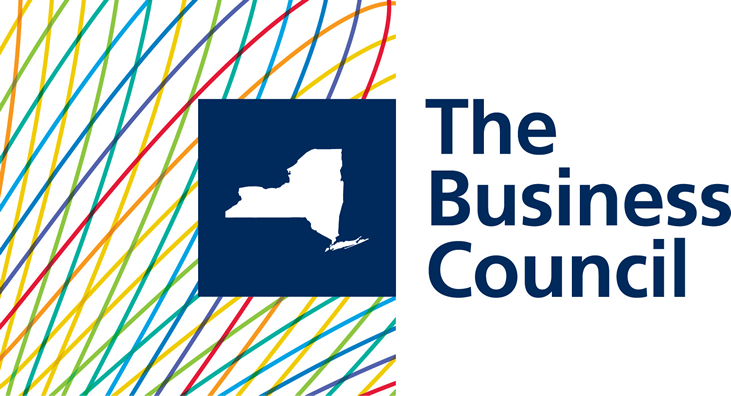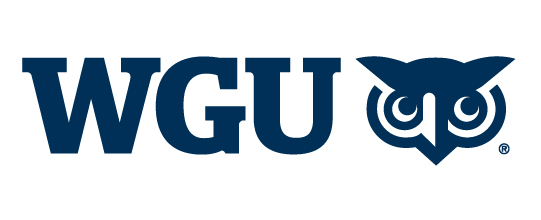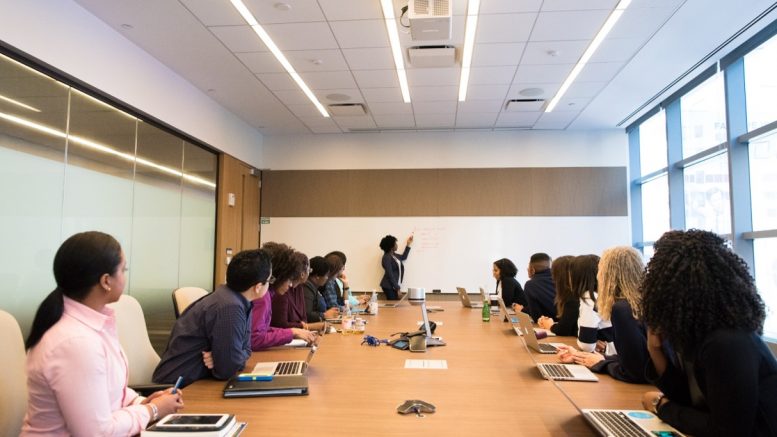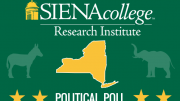- 80% CEOs Say Economic Conditions Worsened Since COVID; Only 40% Predict Improvement in 2021
- Virus Has Increased Costs, Decreased Revenue, Profits & Demand
- 37% Expect to Emerge from Pandemic Stronger & Positioned for Success; CEOs Give Government Low Grades, Call for Tax & Regulation Relief
Loudonville, NY. Eighty percent of Upstate CEOs say that economic conditions in New York State have worsened since the beginning of the coronavirus pandemic. Looking forward from today through the balance of 2021, 40 percent expect conditions to improve while 17 percent expect conditions to remain the same and 43 percent believe conditions will grow worse according to the 14th annual Upstate New York Business Leader Survey from Siena College Research Institute sponsored by the Business Council of New York State, Inc. Seventy-five percent of CEOs say that COVID-19 has increased their cost of doing business while two-thirds say that the pandemic has decreased their revenue and profits, and half say it has reduced the demand for their product or service.
“Predictions and plans for 2020 were instantly discarded as dealing with the pandemic became the number one concentration and challenge for Upstate CEOs,” said Siena College Research Institute Director Don Levy. “Despite its devastating effects, nearly 40 percent of CEOs expect to emerge from the pandemic as a stronger business well positioned to be successful while half think they will survive and return to where they were before the virus hit. Unfortunately, one in seven say that they may or may not survive.”
Only 12 percent of CEOs (up from 6 percent a year ago) give state government a grade of either excellent or good on creating a climate to help businesses succeed. Slightly more, 20 percent, are confident in the ability of state government to improve the business climate. They call on the governor and legislature to provide business and personal tax relief, to cut spending, and to fund business development incentives and infrastructure. Nearly 60 percent of CEOs cite governmental regulation and taxation as among their top challenges.
Twenty-four percent, down from 39 percent a year ago, grade the federal government’s efforts to create a successful business climate as either excellent or good while 31 percent are confident in the federal government’s ability to improve the business climate. While a quarter think a national recession in 2021 is not very or not at all likely, 39 percent believe a recession is very likely or almost certain this year.
Addressing COVID-19
Seventy-five percent of CEOs have received federal funds to assist them in either keeping their business open or to adapt to COVID-19 requirements. Three-quarters cite the continuing impact of COVID-19 as the top challenge they face in 2021. Nearly half, 47 percent are satisfied with New York’s management of the pandemic while only 40 percent are satisfied with the federal government’s response. Looking forward, 46 percent are confident in the state’s management of the crisis while more, 53 percent are now confident in the federal response.
“Many CEOs were hit hard by the pandemic’s effects. Revenues, profits, and demand were down and costs were up including 62 percent saying that COVID-19 safety measures had a significant financial impact on their business,” Levy said. “Forty-percent think that state restrictions were too strict but more, 58 percent believe the state’s restrictions were about right. In response to the pandemic, CEOs had to change many of the ways that they do business.”
Fifty-seven percent have increased the ability for their employees to work from home and 48 percent of those plan to keep this change indefinitely. Thirteen percent have reduced their office space and 42 percent have increased technology support for their employees and 47 percent have increased technical security measures.
“Some have identified opportunities amidst the pandemic. Forty-five percent of all CEOs and over half of those that expect to emerge from the crisis stronger, have added new COVID-19 specific products or services,” Levy said.
Workforce Suitability
Only 28 percent of CEOs, up from 21 percent a year ago but down from 51 percent in 2013, say that there is an ample supply of local workers that are appropriately trained. CEOs’ perception of there being an ample supply of trained workers does not exceed 37 percent in any region of Upstate or 50 percent in any industry group.
Over the course of this year, 48 percent of CEOs reduced the size of their workforce but less than 30 percent plan to make that reduction permanent. Looking forward from today, 27 percent plan to increase their workforce while the majority, 62 percent plan to keep the size of their workforce unchanged. Asked about which workers they are having the most difficulty recruiting, 28 percent say unskilled workers, 56 percent say semi-skilled, 50 percent say skilled and 34 percent say professional.
Only one in five CEOs say that the local workforce has access to training for relevant skills their company will need over the next five years. Over half say that training is available for some but not all positions that they require. One third of CEOs in manufacturing, food/beverage and wholesale/distribution say that the local workforce does not have access to training for the skills their company needs.
2021 Expectations
Looking to the year ahead within their own industry 40 percent expect conditions to improve while 39 percent anticipate worsening conditions. CEOs in engineering/construction and food/beverage are most pessimistic
Thirty-four percent of CEO’s, down from 41 percent last year, expect revenue growth in the coming year, while 25 percent, down from 34 percent last year, expect growth in profits. And only 41 percent, down from 51 percent, of Upstate CEO’s plan to invest in fixed assets in 2021.
“CEOs across Upstate have faced an incredibly difficult year for business. Economic conditions have been difficult for all, devastating for some,” Levy said. “At present despite the depths of the COVID-19 declines, only about 40 percent express hope in a 2021 recovery but their guarded optimism may grow as stimulus money permeates the economy, vaccinations take place and pent up consumer demand is expressed. While many express frustration with not only the pandemic’s effects but also with what they see as a lack of business friendly policies coming from Albany, 61 percent predict that their company will be in business in New York ten years from today.”
From The Business Council of New York State, Inc.
“The results of this survey come as no surprise and underscore the important message the Business Council has been amplifying for months: New York State is in a critical position as a result of the pandemic,” said Heather Briccetti, President & CEO of The Business Council of New York State. “Unfortunately, the recently agreed-upon state budget and business tax increases do not help, and only create more harm to private sector employers. It’s crucial state lawmakers take notice of these continued roadblocks to recovery before the opportunity of a full economic turnaround are gone.”
Heather Briccetti, President & CEO of The Business Council of New York State
14th Annual Upstate New York Business Leader Survey
This Siena College Poll was conducted January – March 2021 by mail and internet interviews with 1036 Business Leaders from across Upstate including the Capital Region, Central/Mohawk Valley New York, the Finger Lakes region, the Mid-Hudson region, the Southern Tier region, Westchester and Western New York. Sponsorship for the 2020 Upstate Business Leader Survey was provided by The Business Council of New York State. Additional support was provided by Western Governors University. The study is released in conjunction with the following media partners: Capital Region: The Albany Times Union; Buffalo: Buffalo Business First; Rochester: Rochester Business Journal; Syracuse: Business Journal News Network, Westchester: 914 INC. The Siena College Research Institute, directed by Donald Levy, Ph.D., conducts political, economic, social and cultural research primarily in New York State. SCRI, an independent, non-partisan research institute, subscribes to the American Association of Public Opinion Research Code of Professional Ethics and Practices. For more information, call Don Levy at (518) 783-2901 or dlevy@siena.edu. For survey cross-tabs and frequencies: www.Siena.edu/SCRI

About Siena College Research Institute
Founded in 1980, the Siena College Research Institute conducts regional, statewide and national surveys on business, economic, political, voter, social, academic and historical issues. The surveys include both expert and public opinion polls.

About The Business Council of New York State
The Business Council of New York State, Inc., is the leading business organization in New York State, representing the interests of large and small firms throughout the state. Its membership is made up of thousands of member companies, as well as local chambers of commerce and professional and trade associations.

About Western Governors University
Western Governors University is a non-profit, accredited online university focused on competency-based learning that serves more than 130,000 students, including 2,900 in New York.





